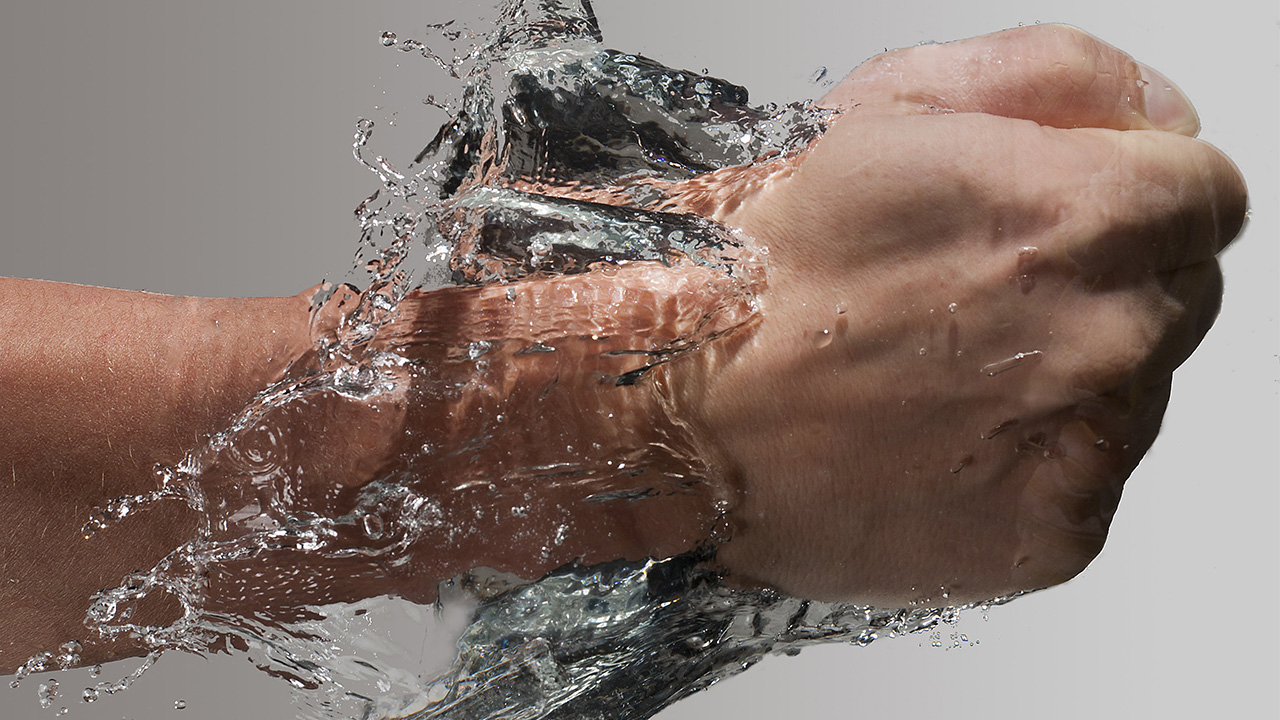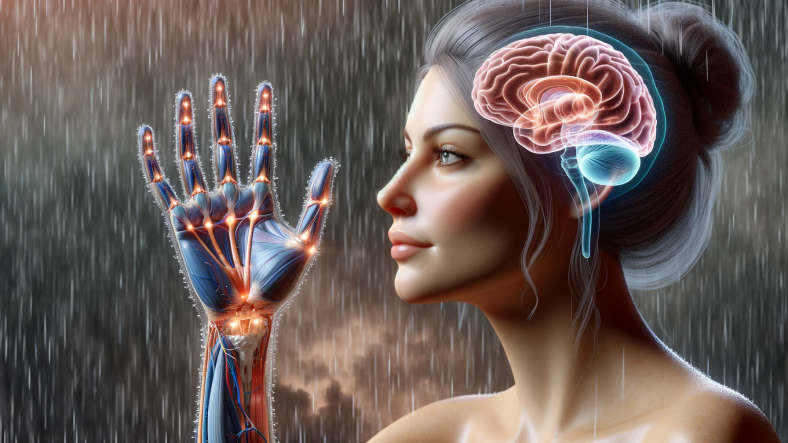In an experiment conducted more than 100 years ago, participants took the test we asked you to imagine and discovered that their fingers weren’t actually wet. they refused to believe. The feeling of wetness was evident, and although they could not see, they managed to perceive water as something other than air.
The condition that makes our fingers feel wet without coming in contact with the liquid, your perception of wetness It will make you think again. In fact, we cannot perceive wetness on its own, and our brains compensate for what is missing with complex patterns.
Let us not be misled by illusions.
When you sweat, when it rains, when you swim, or when you accidentally spill your coffee on yourself… We can count hundreds of experiences. not wrong But the ‘wetness’ you perceive is interpreted by different factors.
There is a cooperation for wetness in our nerve cells, which we can call perception carriers. Our skin; It can detect textures, movement, temperature differences and stickiness. The changes that take place on the skin’s surface are sent to our brain via nerves, resulting in a wet surface.to the illusion of perception” is transforming.
Have you ever not noticed that you were sweating?
In Bentley’s “synthetic experiment” at the turn of the twentieth century, a covered finger was alternately immersed in hot and cold water, and the participants in cold water The reaction increases. Fluids such as sweat, which remain on the skin at body temperature and change temperature over time, become detectable through the effect of cooling.
Properties such as the size of the area covered by the fluid on the skin and tissue and the stickiness of the fluid are also factors that are noted. In addition, so is the pressure exerted by the liquid and touching the wet area with A-type nerve cells can be distinguished.
Over the course of a hundred years, different scientists have come to different conclusions about wetness in experiments.
In one of the interesting experiments hairy and hairless regions appear to have different responses to sensing wetness. Hairless areas, such as the palms, absorb less moisture than hairy areas.
In another experiment, conducted with a quantitative sensory test, cotton and different types of fabric were simultaneously moistened and brought into contact with the skin. wetter An attempt was made to understand how it was perceived. The intensity of wetness and the structure of the fabric have been observed to influence the perception of wetness.
Why do scientists study wetness?

Wetness is defined by the combination of changes such as contact and temperature difference. neural connections It has recently become associated with Research into how our skin moisture is perceived is important for basic and applied sciences. Starting from the interaction of our perceptions with each other clinical, industrial and thermal We can open doors for developments.
MS disease It is thought that it will provide guidance in the treatment and cure of diseases such as Multiple Sclerosis, which affects the central nervous system.
You may have noticed that the temperature varies in different parts of your body.

The distribution of this change and our nervous system can change the perception of the fluid that comes into contact with our skin. As a result, we use our elbow to understand the temperature of the water or to properly warm the milk in a baby bottle. our wrist We can use it.
Theoretically, if you warm your hands long enough, so will the coffee spilled on your hands does not feel wet You may only experience a burning sensation, but we certainly do not recommend this. As a non-dangerous example, we can give the experience that it is very difficult to enter the water after a long wait on the beach in summer.
It can help us survive.
Ability to detect changes in ambient humidity and skin moisture, voluntary and involuntary It makes the development of our behavior possible. In this way we increase our adaptation to the environment. We got very wet in the rain; as the ‘wetness’ that makes you run home, take off wet clothes and make herbal tea, which begins the plot. what we have learned We can say it is a pattern.
The fact that our contact with a wet surface, whether we see it with our eyes or not, comes to us through a network of connections in our brain is just one of the surprising facts about the human body. We have difficulty and wetness when we step into the sea. when it’s cold We understand that this stems from the fact that it creates a greater response. Finally, getting used to the cold also requires attention to the wetness. You know what they say; “It feels cold at first, but once you get inside you get used to it.”
Sources: ScienceDaily, National Library of Medicine, ScienceDirect
Our similar content that may interest you:
Follow Webtekno on Threads and don’t miss the news















